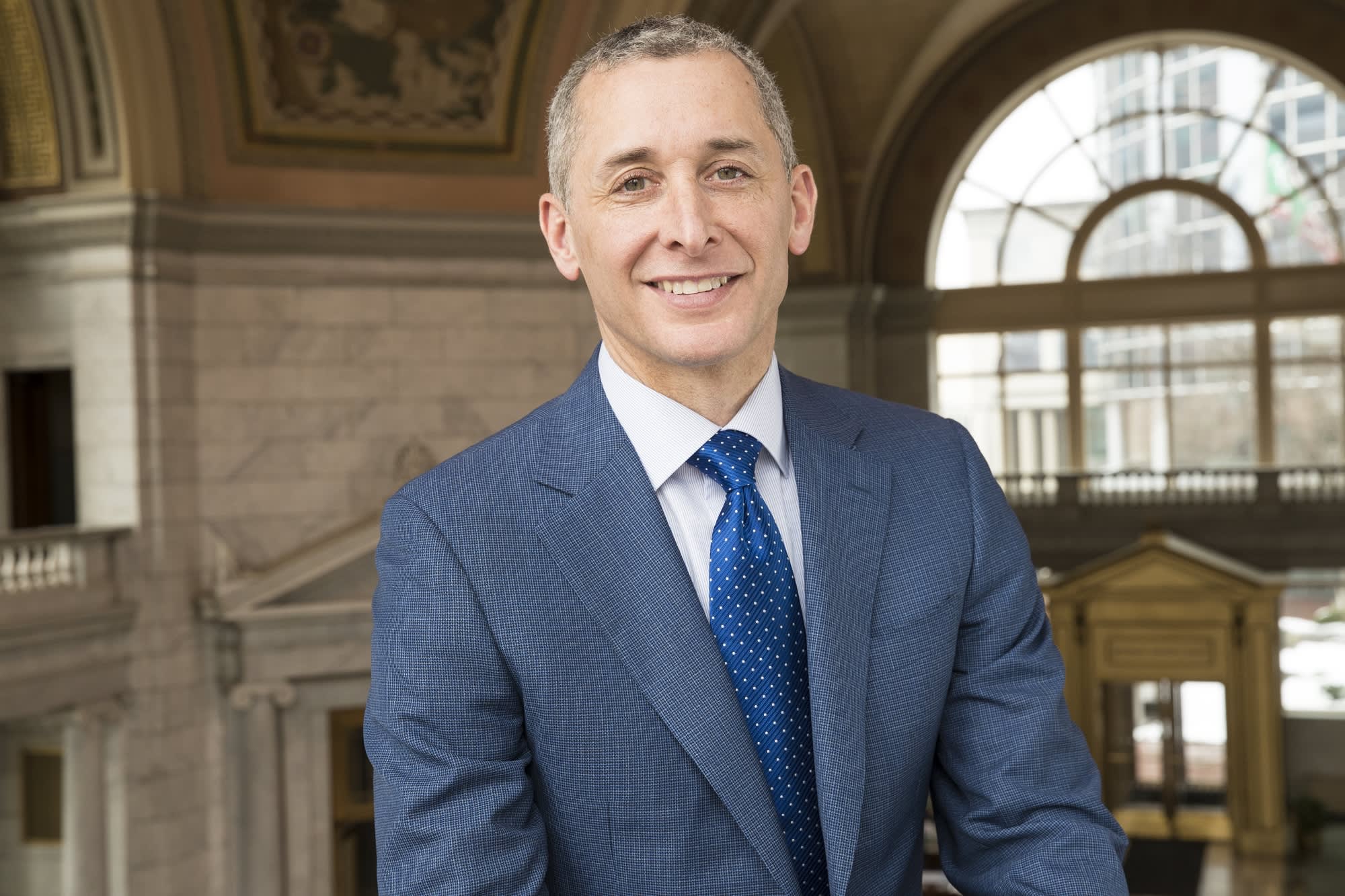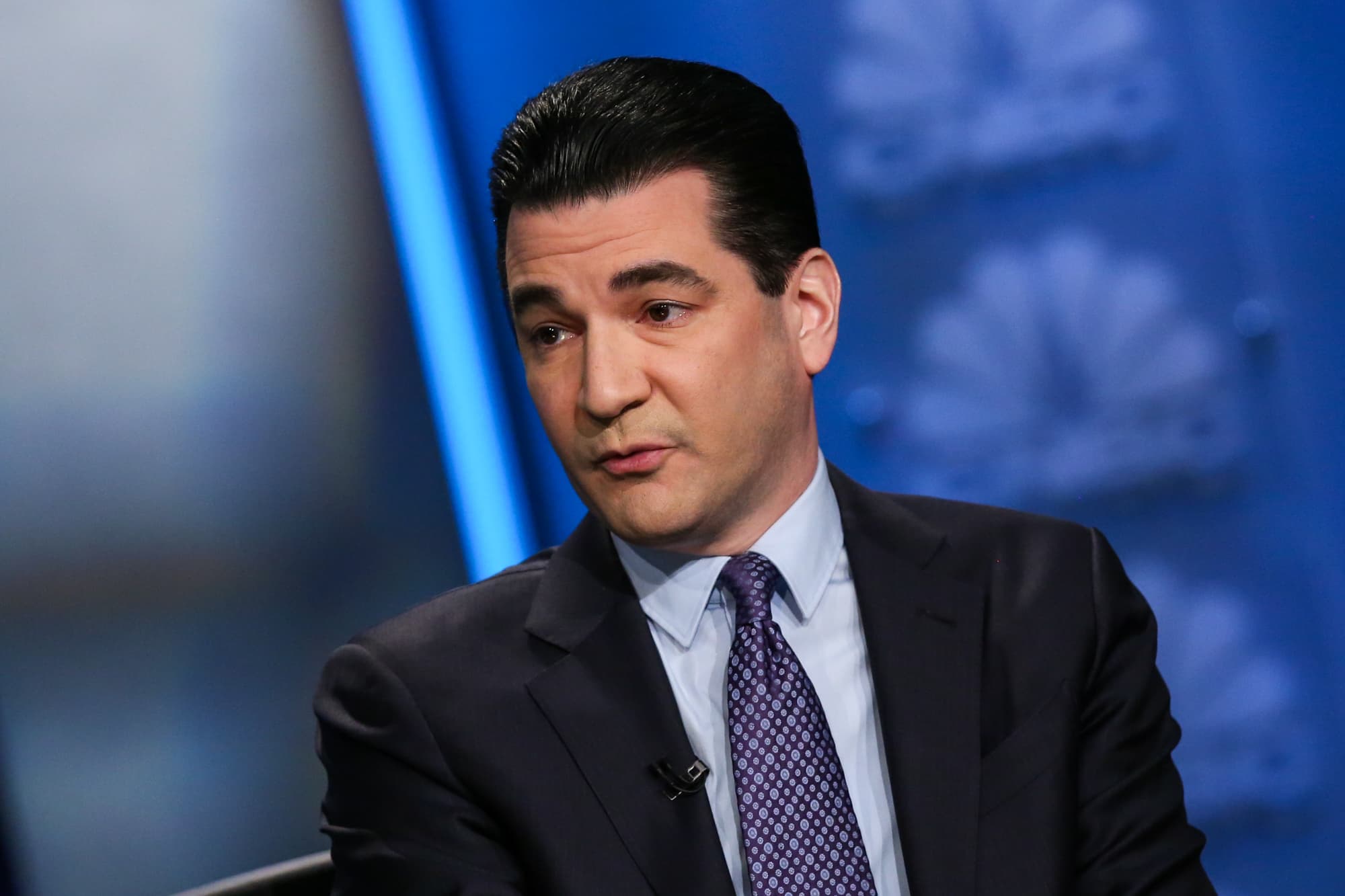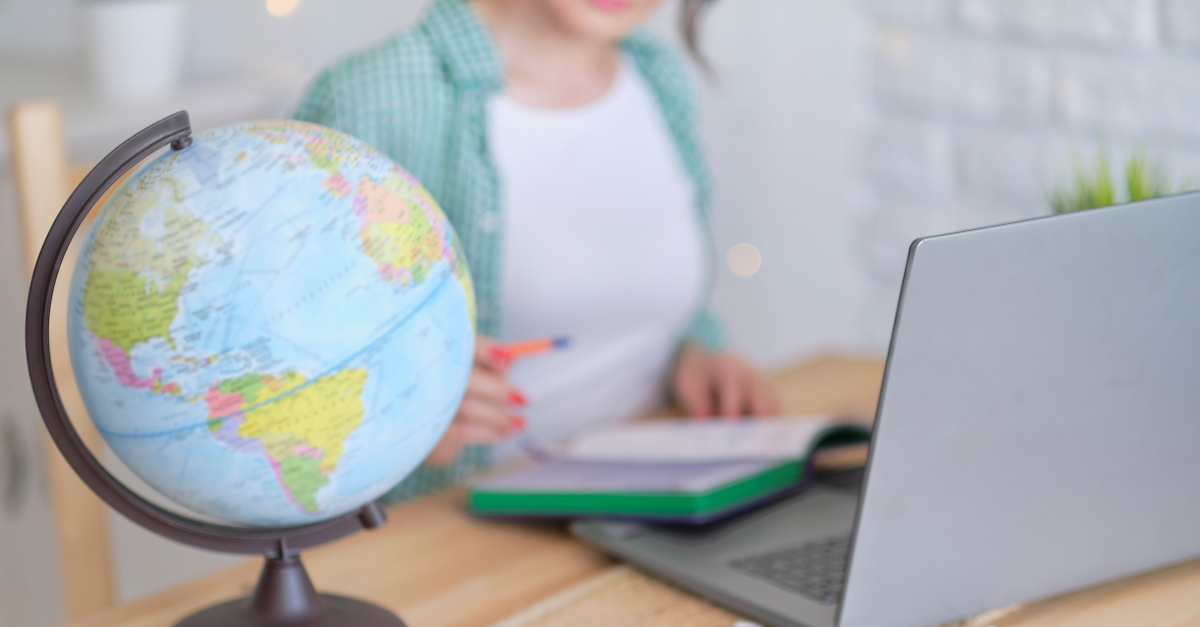Should you WFH or take a sick day? What to consider this cold, flu and Covid season
From testing to monitoring symptoms to taking time off, what to do if you wake up feeling sick.

It almost feels inevitable at this point: In the coronavirus pandemic's third year and with a new cold and flu season upon us, chances are good you'll wake up feeling less-than-stellar one of these mornings.
There are already hints that this year's cold and flu season could be bad: The CDC reported early increases in seasonal flu activity, and anecdotally, people are letting their Covid precautions slip and showing up to work sick anyway.
Not only are there new rules to test and monitor your symptoms to determine what bug you have, work-from-home has raised the bar on taking a sick day — even if you can't physically report to the office, who's to say you can't fire off a few emails while recovering from the couch?
Here's what health and workplace experts advise.
What to do if you wake up feeling sick
If you wake up with a sore throat or runny nose, treat it like it could be Covid-19 and take an at-home rapid test, says Dr. John Swartzberg, a clinical professor emeritus at UC Berkeley's School of Public Health.
If your first rapid test is positive, it's safe to assume you have Covid-19 and make plans to self-isolate, he says.
If it's negative, that doesn't mean you're in the clear. Swartzberg suggests staying home and testing again the next day.
If your second at-home test is negative, or if you complete a PCR test that's negative, then you likely don't have Covid, but you could still have another respiratory virus or infection.
Consider visiting your primary care doctor to be sure. Even physicians say that because of overlapping symptoms, it takes a proper test to determine if you have a cold, the flu, Covid or even seasonal allergies, says Céline Gounder, an infectious disease specialist, epidemiologist and senior fellow at the Kaiser Family Foundation.
Generally, Swartzman says, "through the eyes of a physician and as a public health professional, if you're not feeling well with respiratory symptoms, you should stay home. That's the safest thing to do."
Should you WFH or take a sick day?
As for deciding whether to log into work from home, it's a good idea to work with your own primary care doctor to understand your health and vulnerability if you do, says Dr. Geeta Nayyar, chief medical officer at Salesforce.
You'll want to gauge: "How sick are you? Do you have a fever? Are you actively symptomatic? Are you experiencing headaches and unable to focus? That's very different from recovering from an illness, where maybe you're not at 100% but you can give 85%."
Maybe you have a pressing deadline or an hour of work you really need to do, Nayyar says. "You're going to be the best judge as to whether that's a work-from-home day or you can completely sign off."
If you're going up against a boss who's made their dislike of remote work clear, or is pressuring you to keep working, remind them of times you've been just as productive at home throughout the pandemic, says Caroline Walsh, vice president in the Gartner HR practice.
And if a full day off is in order, discuss how you'll be more productive and engaged after you've rested. "It's the time of year that organizations are in a final crunch," Walsh adds. "The more they can have a well-rested team, the more they can have a productive team."
Generally, remember that working while sick does everyone a disservice: Your body will take longer to fight off illness, your productivity will suffer, and morale-wise, showing up sick "brings the whole team down," Nayyar says. "It shows there's no opportunity to get rest when you need it."
Yes, you can WFH if your colleague keeps showing up sick
Nayyar says it's up to managers to model good behavior to stay home while sick. They should also invite sick employees to go home and assure them it's not only good for them, but also for the rest of the team. "Imagine going from being one person down to five people down — it doesn't help the work."
You can also make those suggestions horizontally to a peer, Walsh adds. Go in with supportive questions: How are you doing? Is there anything I can do for you so you can go home and rest?
If those conversations aren't happening and your desk-mate is still reporting to the office, congestion and all, Nayyar encourages workers to make use of flexible policies: "If you're at risk or feel your health is at jeopardy, the same work-from-home policies apply to you."
Paid sick time is only the start
It can't be overlooked that not everyone is guaranteed paid sick time. There is currently no federal law to mandate paid sick time, and just a handful of states and cities have their own requirements. Roughly 1 in 5 workers doesn't have access to paid sick days, and it's an even bigger problem for low-wage workers.
ReDell Atkinson, 27, says she's noticed more people showing up to her office with a cough or sneezing. Though her workplace has unlimited sick days, she understands why some people show up if they're on deadline or can't complete certain tasks from home. But she'd like to see people continue taking heightened health precautions: mask wearing, hand washing, joining meetings virtually, social distancing and staying up-to-date on vaccines.
Swartzberg and Nayyar agree employers can make sure they're helping their workforce stay informed about how to stay healthy during cold and flu season, understand how viruses and bacteria spread, what symptoms to look out for, where to seek medical attention and other resources to recover from illness.
With open enrollment season, employers should make sure their employees have access to a primary care physician — even better if they support telemedicine options. And employers can provide an on-site vaccine clinic or time off to get the flu shot, as well as the Covid vaccine or updated boosters.
For now, Atkinson will do what she can when she encounters under-the-weather colleagues milling about: Stay masked, reach for the hand sanitizer and mentally check if she took her multivitamins that day.
"Little things build healthy habits," she says. "Our bodies aren't just fighting Covid — they're fighting life."
Check out:
Experts predicted Covid would normalize the sick day. It’s done the opposite
How Gen Z is rewriting dating, marriage and family plans for their 20s
Sign up now: Get smarter about your money and career with our weekly newsletter


 FrankLin
FrankLin 
































